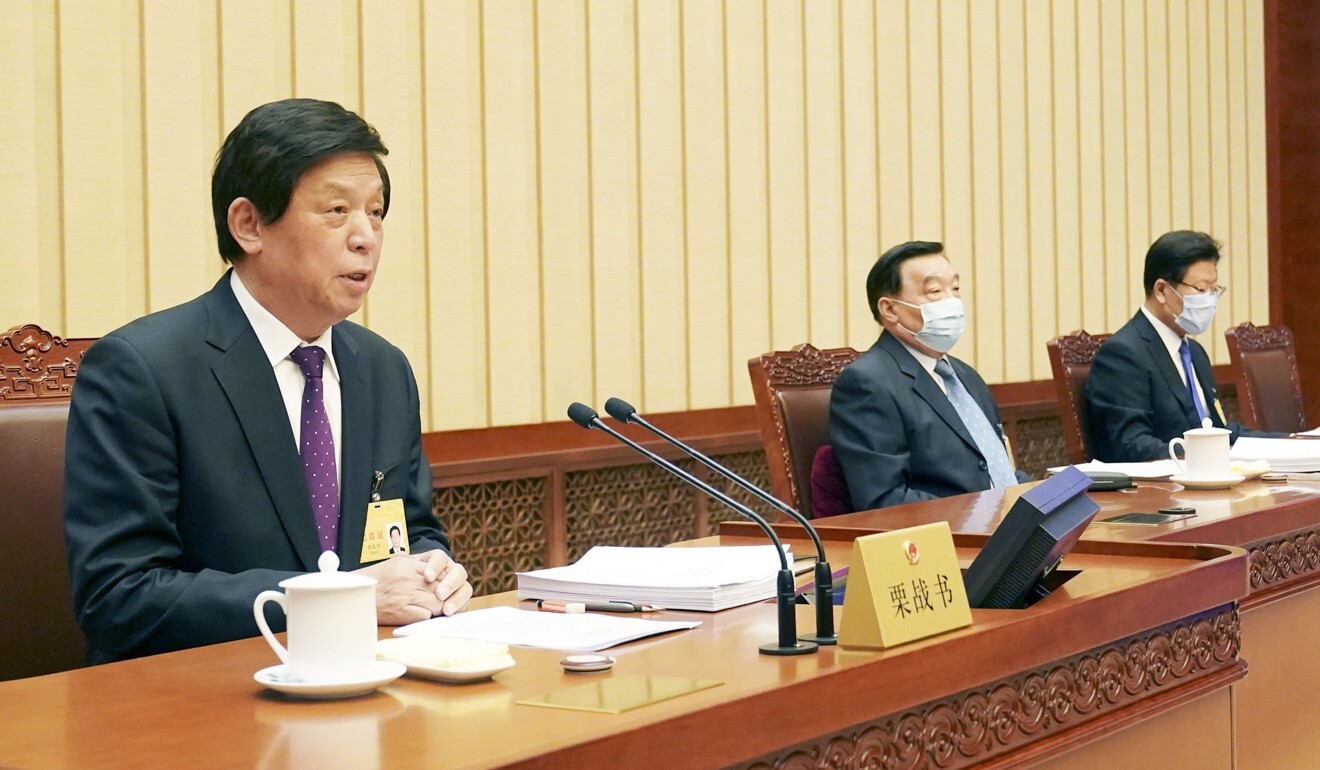
China signals coronavirus under control with resumption of parliament on May 22
- Opening of the annual National People’s Congress session has been delayed for months as country battles Covid-19
- Civil code and biosecurity law expected to be on agenda, along with policies to spur economic growth
It reflected an assessment by Beijing that the pandemic was under control and that it planned to get operations back to normal, said Gu Su, a political scientist with Nanjing University.
“The decision might have been made after a safety assessment and it shows that Beijing is confident there won’t be a second spike [in cases] in the near future,” Gu said. “It’s also a symbolic move that marks a shift of policy focus to restarting the economy and normalising government operations.”
As road traffic returns to normal across the country, the transport ministry on Tuesday said a nationwide waiver of highway tolls would end from next Wednesday. The waiver was introduced more than two months ago to support essential transport in the pandemic.
But restrictions on overseas arrivals at border checkpoints will remain in place.
Beijing’s municipal government meanwhile said it would downgrade its emergency alert level from Thursday. That means just two provinces – Hubei and Hebei – are still at the top tier alert.
The annual NPC is usually held in early March, and was delayed this year for the first time in more than two decades. It is where Beijing makes public its yearly economic growth target and key economic agendas, and the central government delivers its work report and national budgets to be approved by deputies, as well as those from the country’s top court and the legal supervisory body.
While the agenda has not been announced, at least two new pieces of legislation – a civil code and biosecurity law – are expected to be presented to lawmakers for review or even a vote. President Xi Jinping has called for the biosecurity law to be pushed forward – an early draft submitted to the Standing Committee for review in October covers sensitive issues including disease warnings, safety regulations for biological labs and medical waste disposal.
Zhao Xijun, deputy dean of Renmin University’s school of finance, said the conclave was expected to lay out policies to spur economic growth.
“The ongoing NPC session could send a clear signal that [the leadership] wants a coordinated fiscal and monetary policy to help economic recovery, but opposes the use of major stimulus,” he said. “It will also confirm the fact that the fiscal deficit is expanding fast to help curb the pandemic, with the fiscal deficit ratio raised much higher.”
Zhang Yansheng, chief research fellow at the China Centre for International Economic Exchanges, said there could be a shift in political priorities.
“The first thing to be discussed will be how to find a balance between more normalised disease control measures, the recovery of business operations and supporting social welfare,” he said, adding that in-depth discussion on the new fiscal deficit ratio was expected.
President Xi said last month that China would step up efforts to stimulate the economy by raising the fiscal deficit ratio and selling special government bonds, but Beijing has yet to unveil details.
Coronavirus: they’re only answering Xi Jinping’s call but are China’s ‘Wolf Warrior’ diplomats doing more harm than good?
The top leadership on Wednesday said it would roll out policies on taxation, finance and foreign investment to support Hubei, the initial epicentre of the outbreak, and help its economy recover.
“People in Hubei and especially in Wuhan have made great contributions and sacrifices, but they are facing difficulties in economic development and social welfare,” according to the minutes from their meeting quoted by Xinhua.
Xi said at the meeting: “With the support of the party’s leadership and the participation of people in Hubei and especially in Wuhan, the battle to defend Hubei and Wuhan have won decisive outcomes, the nationwide battle to contain the pandemic has achieved major strategic outcomes.”

Wednesday’s announcement did not say how long the annual NPC session would run for, or how the deputies would meet. Footage aired on state broadcaster CCTV showed a group of NPC Standing Committee members – most of whom are based outside Beijing – taking part in this week’s meeting via teleconference. One of them was Tam Yiu-chung, a Hong Kong representative, who told reporters that “special arrangements” had been made to ensure the safety of deputies during the pandemic.
Chinese cities turn to video tech to cut coronavirus risk at key meetings
According to Tam, NPC chairman Li Zhanshu said the session would aim to “unite thoughts” on China’s overall situation and assess the progress of its poverty eradication programme.
Tam said he believed deputies would attend in person, adding that plans were in place to minimise health risks during the gathering.
The annual NPC session would usually see around 3,000 lawmakers from around the country gather at the Great Hall of the People in Beijing, and the sessions are also attended by more than 2,000 political advisers of the Chinese People’s Political Consultative Conference.
The coronavirus outbreak was first reported in Wuhan, capital of Hubei, in December and the virus has now infected more than 3 million and killed over 217,000 people around the world.
Mainland China reported 22 new infections of Covid-19 as of Tuesday, bringing the total to 82,858. There were no new deaths reported, leaving the total death toll at 4,633. The National Health Commission said there were 26 new asymptomatic cases reported on Tuesday.
Wuhan removed its lockdown measures on April 8, and the city currently has no Covid-19 patients in hospital after the last 12 were discharged on Sunday.
Additional reporting by Gary Cheung, Orange Wang and Frank Tang

